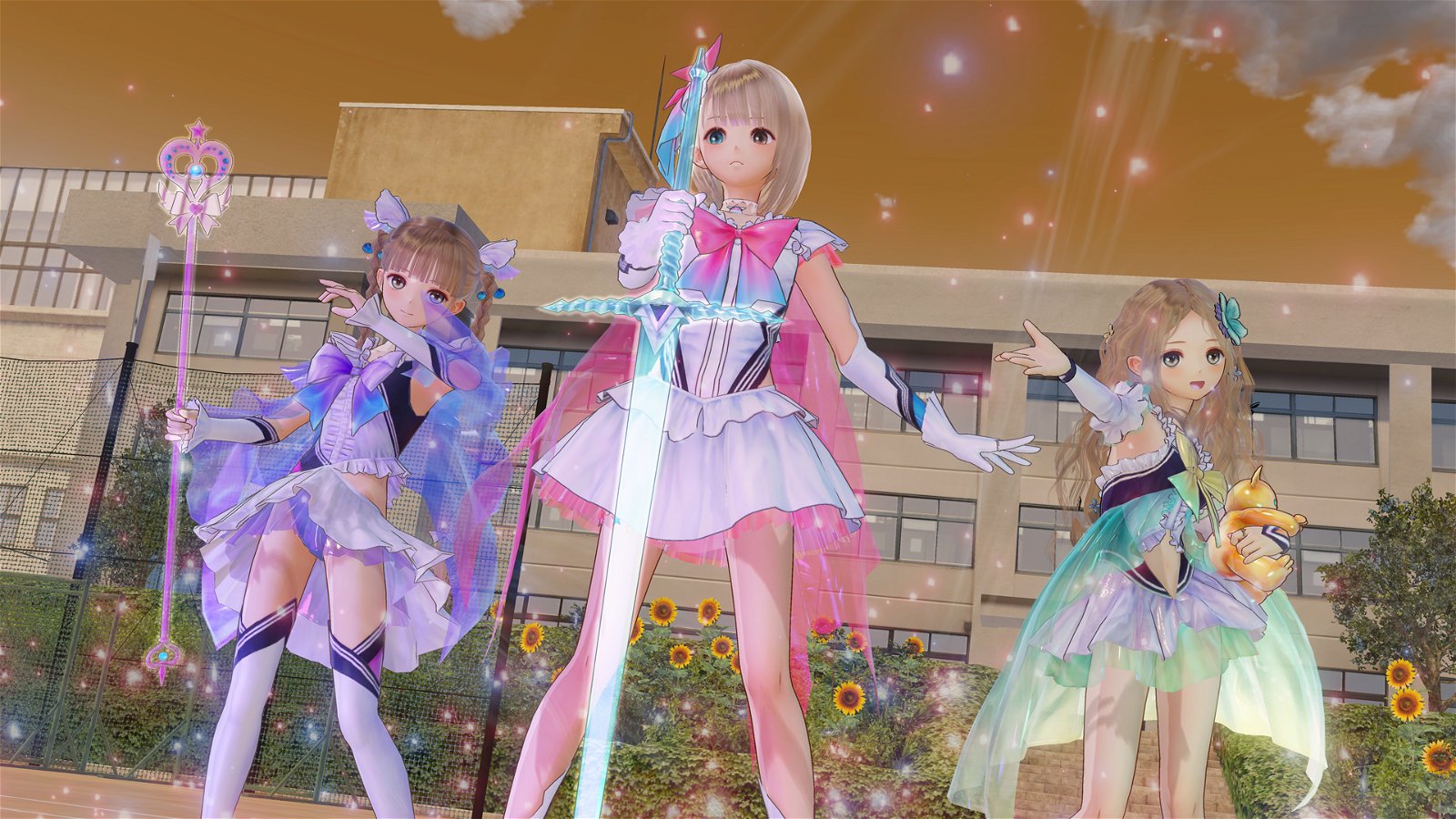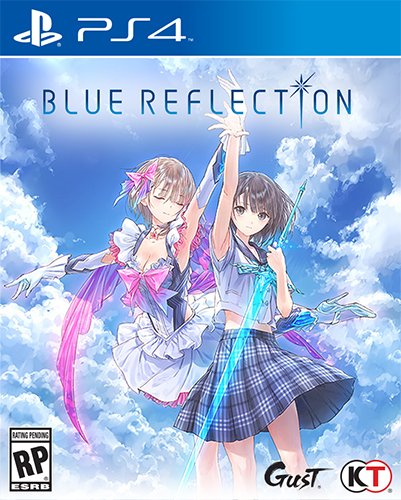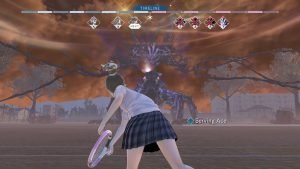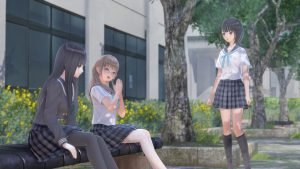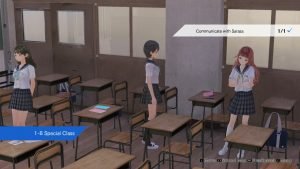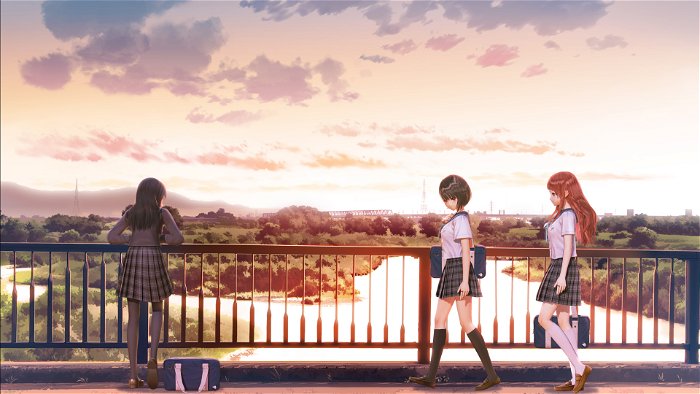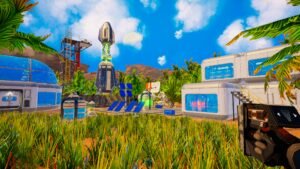The magical girl genre is a staple of modern Japanese fantasy. From the bright and bubbly Sailor Moon to the disturbingly grim Madoka Magica, there’s a wide variety of anime and manga starring superpowered ladies out to save the world. The latest arrival to the scene, Blue Reflection, fills a niche most entries in the genre don’t: rather than being yet another TV show, it’s a traditional Japanese RPG by the developers of the Atelier series. To its credit, it’s perhaps the most conceptually “pure” magical girl video game ever released in the West. Unfortunately, it’s also bereft of substance, and relies on tiresome smoke and mirrors—sparkles and bubbles, really—to disguise its numerous shortcomings.
Blue Reflection takes place in a fictional realization of modern-day Japan and follows Hinako, a transfer student to the all-girl Hoshinomiya Academy. After an accident shatters her dream of becoming a professional ballet dancer, she is listless and uncertain about the future. Her life changes forever when she meets Yuzu and Lime, twin girls who awaken Hinako to the power of the “Reflector,” and she becomes a magical maiden tasked with assuaging rampant emotions in a parallel dimension called “The Common.” More importantly for Hinako, becoming a Reflector allows her to move in The Common as if her leg was never injured, so she accepts her new station with aplomb.
Drawing upon popular RPGs that use a contemporary setting, like The Caligula Effect and Tokyo Xanadu, Blue Reflection is yet another game that aims to balance the day-to-day mundanity of Japanese high school life with otherworldly adventuring. Regrettably, its gameplay-to-story ratio is heavily skewed in favour of vapid, long-winded cutscenes. Worse, it’s stuffed to the brim with repetitive, generic quests and offers virtually no variety in terms of exploration or battle.
Every chapter begins with Hinako meeting a new girl at school with a one-note personality (Girl Who Loves Tennis, Girl Who Loves Photography, Girl Who Loves Makeup, and so on), whose emotions eventually run rampant and must be quelled in The Common. The Common is composed of only four areas, each tied to an emotion, and are impossibly small—we’re talking one or two screens per “dungeon.” Blue Reflection asks the player to venture into these same environments over and over to complete riveting quests like “slay five monsters” or “collect four objects” until they have accumulated an arbitrary number of points. Rinse and repeat every chapter.
It should also be noted that while Blue Reflection projects a distinctly soft, female-oriented aesthetic, there’s an odd clash between its cutesy facade and the reality of what it depicts. It features scene after scene of teenage girls teasing each other in the shower, lounging in the bath, and commenting on one another’s underwear, with camera angles that linger meaningfully below their waistlines. There is a scene where one girl peeks at Hinako’s panties to see if they’re cute, asks her if she’d like to trade, and then literally takes hers off in the middle of the school hallway to swap with her. I’ll refrain from making any judgment on the nature of the material itself, but it needs to be said that Blue Reflection is a highly sexualized depiction of female adolescence, point blank. Your mileage may vary.
Combat in Blue Reflection had the potential to be the crowning jewel of the experience but is almost entirely invalidated by how meaningless it is. Blue Reflection has no experience point system, no equipment, and no shops. It has only a rudimentary growth system that allows the player to invest attribute points in four stats (attack, defense, support, and “technical,” which is basically luck) based on how far they’ve progressed through the story. The player also earns “fragments” from completing quests that function like ability modifiers, granting effects like bonus damage or added debuffs depending on which abilities they’re attached to. Battles themselves use a stripped-down, turn-based system that quickly becomes monotonous, and HP and MP are restored to full after every fight. The removal of any meaningful character progression system renders combat effectively pointless, making a system that should be the crux of the game feel like nothing more than a roadblock.
Two elements of Blue Reflection stand above the rest and go some way toward salvaging the experience. Its over-the-top boss encounters pit Hinako and her friends against grotesque, towering monstrosities with neo-gothic designs that feel like errant Bayonetta transplants. These battles allow Hinako to call her school friends in to assist in a variety of ways, from spiking a tennis ball in the enemy’s face to calling in an airstrike (seriously). This is the only context in which its daily life and combat segments overlap successfully; it’s beyond me why the developers limited these cooperative abilities to boss battles exclusively. The other saving grace in Blue Reflection is a phenomenal soundtrack that vastly outclasses the game it was made to accompany. In battle, it layers high-voltage electro beats over violin and synth hooks; in Hoshinomiya’s hallways, delicate piano melodies paint the windows like raindrops on a foggy summer evening. Composer Hayato Asano asserts his musical fortitude here with panache.
Blue Reflection fails to live up to its tantalizing premise. It’s a tedious cocktail of unfulfilling gameplay and limp storytelling that uses covert sexuality as a crutch. I wanted Blue Reflection to make me feel like I was punishing enemies in the name of the moon; instead, I was the one punished by its hollow and repetitive loop.
